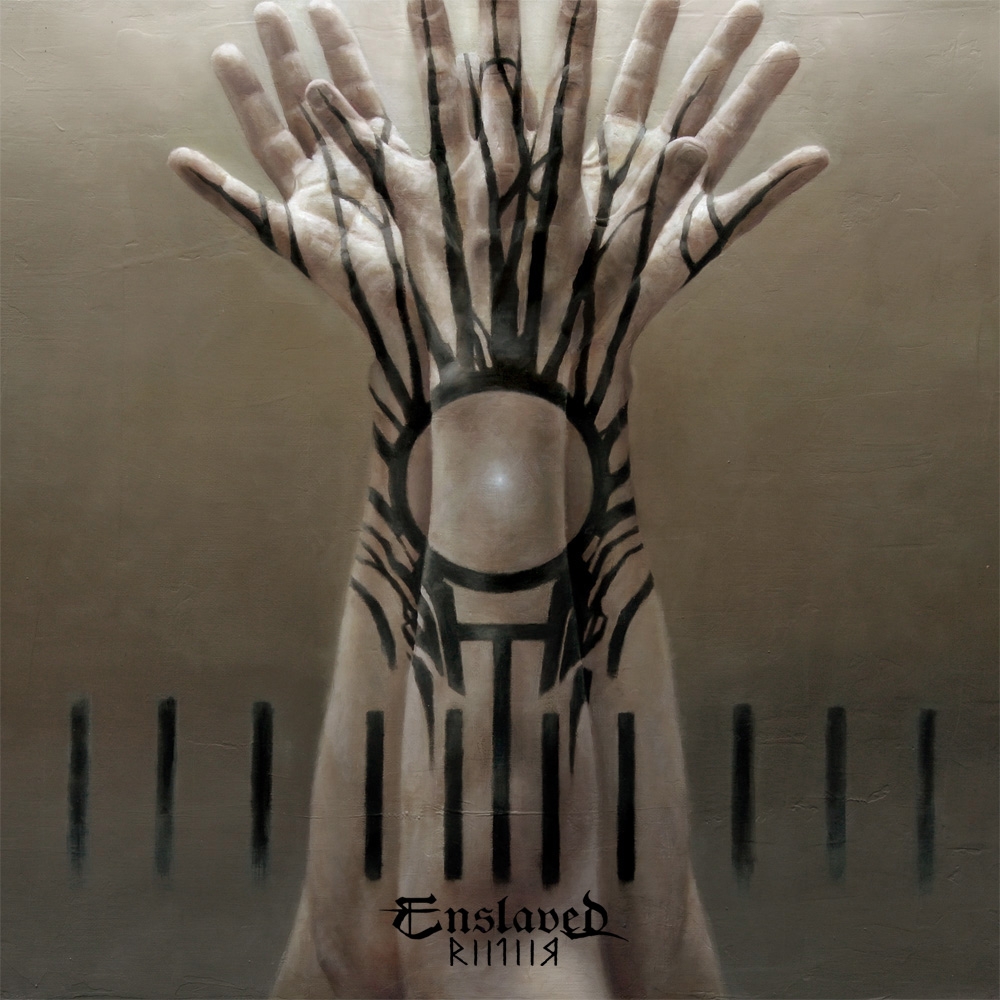
Album Review: Enslaved - RIITIIR
The downfall of extreme metal is the overemphasis on the word 'extreme'. So often, bands become obsess with making sure their music is extreme, which ends up taking it so far away from the core of songwriting that little is left but a shell of noise. Listening to those kinds of records can be exhilarating, if in the right frame of mind, but for people who don't fall into the category of angry young men, extreme metal comes off as a parody.
There was a time when extreme metal bands were able to push the envelope while maintaining a core to their sound that let people who hadn't yet journeyed that far from the mainstream still accept what they were hearing. That seems like it was worlds away from now, even if I wasn't old enough at the time to appreciate what was happening. The metal scene I've come to know is not one that embraces all comers, it's one that adheres rigidly to genre. Black metal fans are black metal fans, death metal fans are death metal fans, and few want to hear the similarities that bind all natures of extreme music together.
What makes “RIITIIR” an interesting album is that it does not allow itself to be pigeon-holed, and doesn't dedicate itself to alienating anyone who was foolish enough to hit the play button. It's undoubtedly an extreme metal record, but it retains a core of musicality that makes it more than a one-note affair.
“Thoughts Like Hammers” lays out the blueprint, matching harsh croaks and cold guitars to sections of almost progressive musicianship and somber clean voices rising from the background. Rather than spend the entire running time bludgeoning riff after riff over the top of relentless percussion, the song ebbs and flows as it tries to encompass a journey, revealing more aspects as it passes along. The point in the middle of the track where the song falls away into a lone guitar, only to build itself back up again to a propulsive riff is the sort of writing that not only captures the listener's attention, but emphasizes the extreme elements by placing them in proximity to more standard fare.
These bits of alternative songwriting, like the subtle acoustic guitars underlying the opening riffs of “Death In The Eyes Of Dawn”, are what make “RIITIIR” a record worth listening to. Others can be categorized as noise-mongers, but Enslaved puts together a brand of extreme metal that still has appeal to people who aren't usually fans of that kind of music. Purists will hate that sentiment, but it's an important point for the music to achieve what it wants to. The plaintive melodies sung by clean vocals in the aforementioned track don't take away from the power of the music, nor do they somehow make it less metal. Noise may be the purest form, but it's still only noise.
The tremolo riffs and bitter croaked vocals leading off “Veilburner” are unmistakeable as anything but extreme metal, and are also less interesting than many of the other aspects the song brings to the table. The almost tribal beat underneath the choral vocals, as well as the jagged guitar riffs that belie the tradition of black metal, are far more gratifying expressions.
“RIITIIR” is at its best when it breaks away from the conventional approach to extremity and embraces all inspirations. There are sections of the record that transcend expectations, and in these moments, it's clear why this kind of music is being made. They're too infrequent in the overlong running time, but they are there, and show that there might just be some hope for extreme metal after all. At least if the purists don't have their way.

